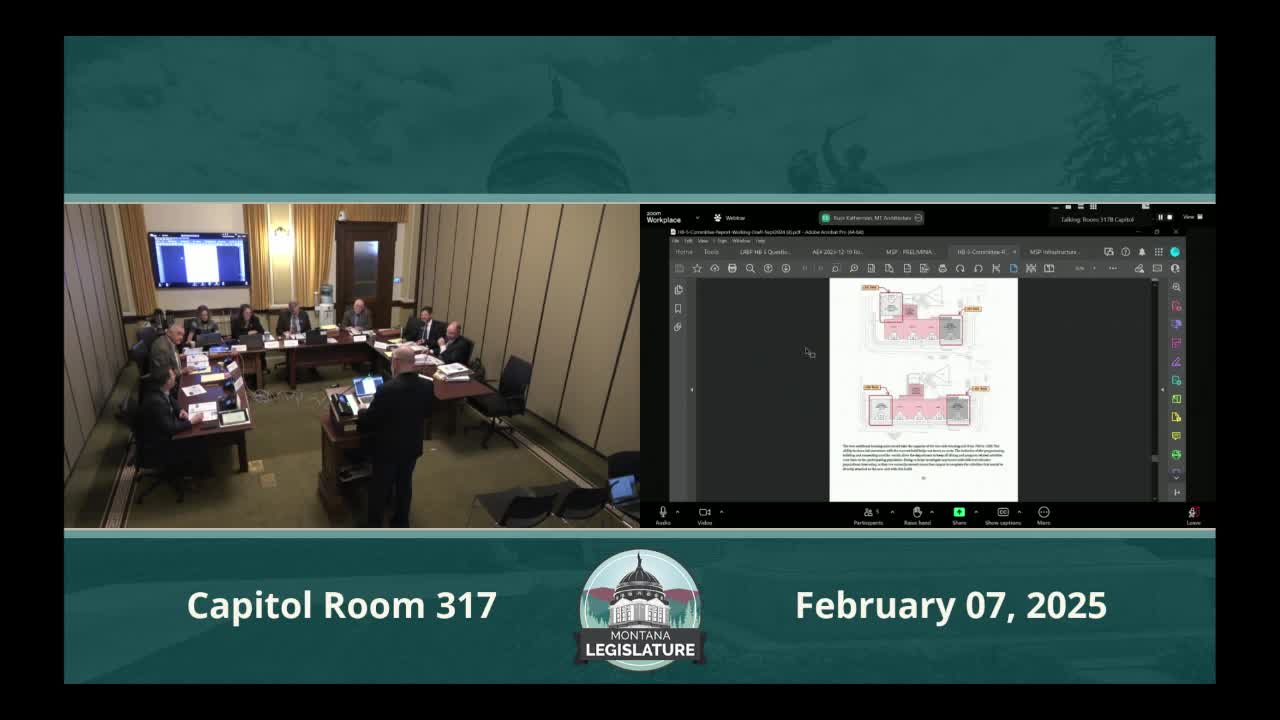Committee weighs mechanical system replacement at state hospital and repairs to Sprat unit
Get AI-powered insights, summaries, and transcripts
Subscribe
Summary
Architects told the subcommittee that aging mechanical systems at the state hospital require replacement to meet compliance and avoid system failures; the Sprat building needs substantial licensure and safety upgrades and may be repurposed in part for long‑term forensic or dementia care.
Subcommittee members heard a joint briefing on mechanical system replacements at the State Hospital and on planned repairs and licensure work at the Sprat building, projects included in House Bill 5.
A&E witness Russ Katherman said a recent engineering study found HVAC and refrigeration equipment at the hospital that is roughly 30 years old and at risk of failure; the department previously received a $15.9 million appropriation to address compliance upgrades for residential care, and the new request is intended to replace aging boilers, address R‑22 refrigerant issues and prevent future outages.
Why it matters: Witnesses said failures have already occurred; Katherman told the committee two boilers recently went down and required temporary repairs. Replacing mechanical systems is framed as needed to maintain Medicaid/Medicare certification for residential care populations.
Sprat building and forensic/dementia care
• Sprat use and licensure: Committee discussion said Sprat currently serves residents with traumatic brain injury and dementia who are not manageable in conventional nursing homes. The department revised its submission to emphasize licensure upgrades; Katherman called the building “beat up and worn out” and said substantial work is required.
• Possible future use: Several lawmakers and witnesses discussed converting or using Sprat to provide forensic restoration beds or long‑term care for people with dementia when other options are unavailable. Representative Vinton noted the building could be adapted to meet modern life‑safety standards for behavioral health settings.
• Outside partnerships: The committee heard the department and corrections are in discussions with a private provider, ICARE, about operating specialized facilities, but witnesses said such arrangements would not be a short‑term fix.
Questions and next steps
Members asked whether infrastructure or staffing is the larger driver of non‑compliance; witnesses said physical plant condition is a component but that staffing and other factors also affect certification. The committee requested follow‑up information on staffing and certification steps and on project memos shared with members after earlier joint sessions.
Ending
There was no formal action in the hearing segment; the committee indicated it will seek additional technical detail and cost breakdowns for design and licensure work before completing appropriations.
